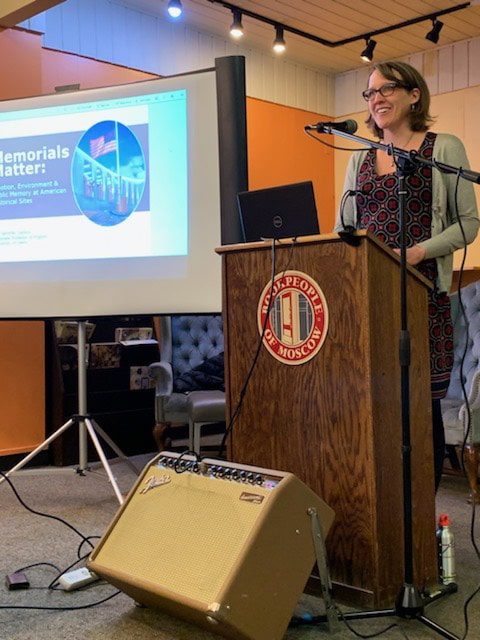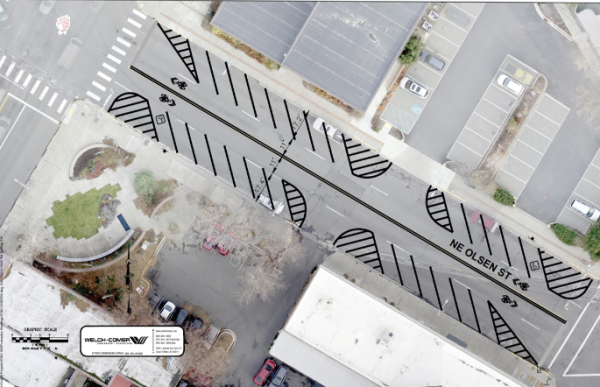Author dissects emotional impact of park sites
Book argues natural, physical environments shape visitors’ perception
Jennifer Ladino, an author, professor and National Park Service Ranger, says her book stemmed from her personal life and thirteenth summer working as a ranger.
March 18, 2019
Neill Public Library is hosting a reading and discussion on a book called “Memorials Matter: Emotion, Environment, and Public Memory at American Historical Sites” with Jennifer Ladino, an author, professor and former National Park Service Ranger.
The reading will occur at 5:30 p.m. Tuesday at the library.
Adult Services Assistant Jesica Sweedler DeHart said those at the library like to offer diverse events that support local authors while bringing content that reaches a broad audience.
“This book reaches across many departments, from history and architecture to English,” Sweedler DeHart said. “A book like this appeals to the university community, retired patrons, patrons that like to travel, patrons that like history and so forth.”
Ladino said her book investigates and features seven different National Park Services (NPS) sites in the American west and how those natural and physical environments shape visitors as they learn about history.
“I track visitors’ emotions as they learn more about the traumatic historic sites,” she said. “Specifically, I track how these historical sites make us understand our national identity as Americans.”
Ladino said in her book, she explores specific emotions with NPS and tries to disconnect patriotism from military and nationalistic aspects.
“Visiting these National Park sites made me feel different about patriotism,” she said. “That love of country is a complicated thing — it is not only about nationalism or protecting our borders”
Ladino said emotions are not just black and white.
“Society does not have a very sophisticated vocabulary related to emotions,” she said. “We talk about very basic emotions like love and hate, but I think our emotional lives [are] more complicated than that.”
Ladino said managers at NPS sites must help break down those types of emotions for visitors to have a better understanding of what happened.
“For example, I talk about a WWII Japanese internment camp located in Manzanar National Historic Site, parts of the past that is very difficult for the nation to grapple with,” she said. “Historic places like this in our nation impacts and shapes our emotional lives very powerfully, and we are not always aware of it.”
Ladino said society needs to be more aware of people’s emotional lives and try to empathize because not everyone’s experience is the same in America.
“It came out of my personal life more than anything,” she said. “The idea grew during my thirteenth summer working for the NPS as a ranger.”
Ladino said as a ranger, she visited several NPS across the American west, talking to rangers and reading signs throughout the National Parks.
Ladino said she has always been an author. As a young writer, she kept journals in which she wrote poetry and fiction. When she got into college and then graduate school, writing became a part of her professional life.
She said this book is a hybrid of scholarly research and narrative scholarship.
“To make a scholarly piece more interesting, I wanted to try to put my own perspective in it,” Ladino said. “I found my own creative way to turn scholarly writing into something I enjoy to do and hope that I write something that people are interested in reading.”
The article has been updated to correct some of Ladino’s statements.





















